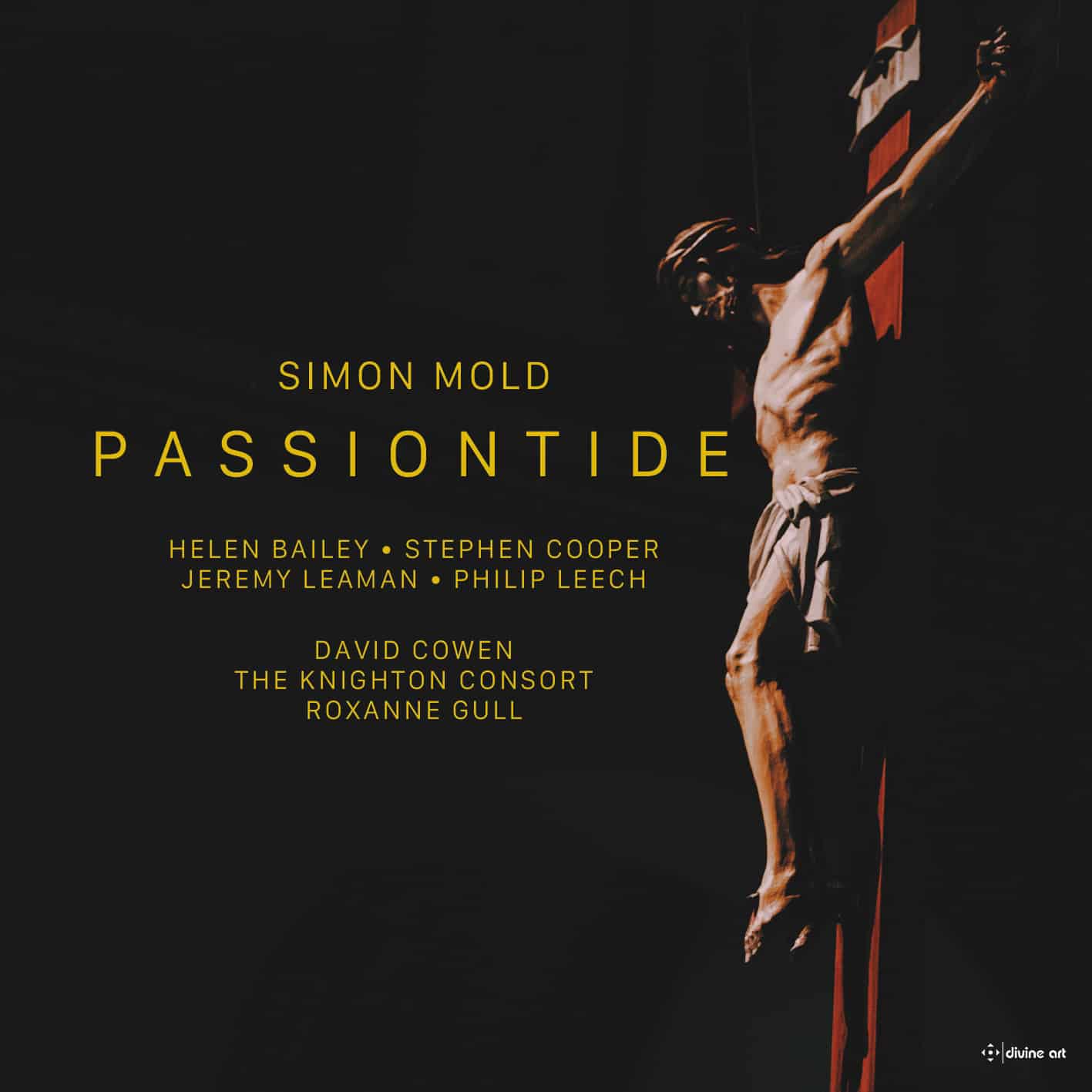Catholic Herald
Settings of the Passion story by an English composer in the English language have always been thin on the ground, probably nervous of competition with Handel’s Messiah. And despite some interesting modern examples – including a neglected epic by Jonathan Harvey called Passion and Resurrection, written for Winchester Cathedral in 1981, as well as next-generational updates on St John and St Luke by James MacMillan – the ones that people tend to know aren’t necessarily of shining calibre or spiritual substance. There are the 1970s pop jobs, Godspell and Jesus Christ Superstar, which I suppose count as Passion narratives. And there’s the sincere but stodgy Victoriana of John Stainer’s Crucifixion or JH Maunder’s Edwardian counterpart Olivet to Calvary: music loved by many an amateur choral society but, to my ears, dismal.
So a new contender can only be welcome. One recently releasedon disc – from the Divine Art label – is Passiontide by Simon Mold: an 80-minute score composed in 2010 for various performers connected with Leicester Cathedral. Mold isn’t quite a household name but he’s been active on the UK choral circuit as a singer and teacher for many years. And what he’s written here is something carefully calculated to be within the reach of amateur performers – none of it unduly challenging, and based eclectically on musical sources that range from Bach (to the point of parody) through to Vaughan Williams and Rutter.
As for the text, it’s almost entirely in English, drawn from 19th-century hymnodists, assorted psalms and a bizarre chunk of the medieval Dream of the Rood in which the wooden beams of the Cross expound on their journey from tree trunk to sacred relic. Most of the words come from a 17th-century text published as Christologia, or, A Metrical Paraphrase on the History of Our Lord and Saviour Jesus Christ by one Elisha Coles, who took it upon himself to rewrite the gospel texts in rhyming couplets.
That Coles was of Puritan stock might not commend his work to devout Catholics, and he’s a strange choice for this work, responsible for quaint archaicisms that occasionally descend to the level of pantomime. “Must I, O Father, drink this bitter cup?/Thy will be done: I’ll freely drink it up” is a bathetic case in point that doesn’t altogether dignify Christ’s agony in the garden. More positively, there’s a pleasing succinctness in the way the story unfolds, organised into five scenes – Last Supper, Gethsemane, Pilate, Crucifixion and Death – pinned together with reflective motets or hymns that serve much the same functions as Bach’s chorales and deliver a competently constructed tunefulness that will please many a chorus. Beyond that, I can only say I wish the music had more definition, strength and edge: it’s unadventurous in idiom, with not enough to captivate the heart or memory. But it has practicable uses for a parish choir. And though the recording, produced by Mold himself, hasn’t the vocal excellence expected in these days of elite professional consorts, it too has uses – as a demo disc to introduce the piece to possible performers. There will surely be some.
@divineartrecordingsgroup
A First Inversion Company
Registered Office:
176-178 Pontefract Road, Cudworth, Barnsley S72 8BE
+44 1226 596703
Fort Worth, TX 76110
+1.682.233.4978












